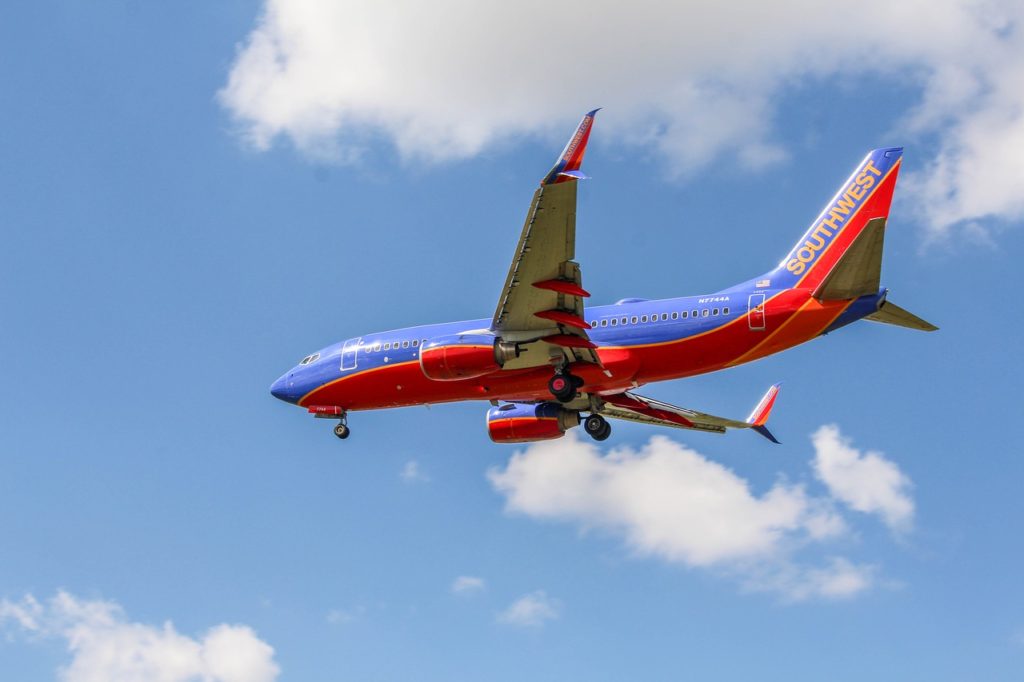Can I Bring my ESA to a Hotel?
If you plan on travelling with Fido on your next adventure, it’s a wise idea to brush up on the hotel laws for emotional support animals. It’s important to consider that in the US (and many other countries), these laws are very different from the service animal laws, which are established under the Americans with Disabilities Act (ADA).
This act defines dogs as the only allowable service animal, in which businesses are federally obligated to let you in with. An “assistance animal,” however, is a pet used for emotional support and doesn’t require any formal training. An assistance animal or ESA can be anything from a dog and cat to a bird or even a reptile!
You can look at registering your animal with the National Service Animal Registry.
Staying at Hotels with Emotional Support Animals: Know Your Rights

Your Legal Rights
Does this mean that there are no laws regarding emotional support animals? Thankfully, the answer is no. Emotional support animals are defined and covered under the Fair Housing Act. The Fair Housing Act was created to protect landlords and property owners from discriminating against people with disabilities, including their animals used to support them.
The only two requirements for having a legally protected ESA are a documented disability and proof of the animal’s benefit to the individual, which must be signed off by a doctor or your mental health provider. But if hotels aren’t technically residential property, does this protection still apply?
Their Legal Rights
The short answer is no. Because a hotel is a business, and there are no protections for emotional support animals in commercial establishments, hotels have the ability to deny you and your ESA entry. A doctor’s note won’t challenge this decision, although it may help influence the minds of the hotel staff.
However, some of the more popular hotel chains are taking steps to rewrite their policies regarding emotional support animals. In many cases, hotel chains that never allowed pets in the first place are making special exceptions for emotional support animals. This might require special documentation or advanced notice, and only certain breeds or species might be allowed.

Don’t Fall for This
Before we dive into the specifics of hotel laws for emotional support animals, let’s discuss a common pitfall for pet owners. If you search for emotional support animal laws on the web, chances are you’ll come across some official-looking registries with licensed doctors or notaries who will “certify” your pet in exchange for a fee. While these look promising, they’re nothing more than a scam for your money.
These certifications, especially ones promising to list your pet as a service animal rather than an ESA, hold no legal tender and can be denied by any business. That being said, having paperwork signed off by a doctor might give you some credibility, especially if you’re trying to persuade your landlord. But if you’ve never met this doctor, or even worse, they might be a fraudulent one, you won’t go very far with these registries.
Restrictions May Apply
Looking at the policies of chains like Marriott, Comfort Suites, Best Western, and Hilton, the general consensus is that pets are allowed on a location by location basis. If the franchise owner of the hotel you’re planning on staying at does indeed allow pets, then you usually are subject to a fee and restrictions on number, weight, and breed of pets.

At Comfort Suites, for example, pets are allowed for a small surcharge but prohibited from entering any of the common areas. You can bring up to two pets under 50 pounds, but additional policies at the franchisee’s discretion may apply. The benefit of this is that you may be able to seek special permission for your pet or circumstances, but this still won’t get you out of paying an extra fee.
What About Airlines?
When it comes to airlines, however, this fee is nothing to worry about. The only other law on the books regarding ESAs has to do with commercial flights. Under this law, ESAs are required by all major airlines to be allowed to fly, in cabin. Proof of documentation is required, that reflects the benefit of this service animal to your disability. The great thing about this protection is that airlines are not allowed to charge you extra for your ESA or service animal.
Of course, bringing an entire horse to your boarding gate might cause some issues. Or, more realistically, larger dogs or breeds considered “aggressive” by some people might require special arrangements to board successfully. Some airlines require a pet carrier or adequate collar/leashing in order to board. The other benefit of this law is that it does indeed apply to all animals, not just dogs and cats. Hamsters, birds, and reptiles among other species are allowed as ESAs, although it will be harder to prove the benefit of something like a snake to your disability.

Travelling Smart
People regularly exploit the ESA laws to transport regular pets, farm animals, and more on flights across the US. TThis is why it is essential to have substantial documentation and a letter signed by a medical professional that you have a history with. Coming to the airport with a proper pet carrier, identification, and taking care to mind any messes your pet might make will help prevent any issues with you boarding your flight. While traditional pet owners might have to pay a fee to board their pet on the flight, ESA owners shouldn’t have to.
Tips for Making it Work
With so many grey areas surrounding hotel laws for emotional support animals, perhaps one of the best ways to minimize any difficulties you might encounter during your travels starts with picking your emotional support animal in the first place. For instance, bird owners tend to encounter more resistance and hesitation among hotel staff regarding their pets.
Birds are certainly valid as emotional support animals due to their intelligent and loving nature, but hotel staff often have concerns regarding the noise and mess they might make. If you do have a bird as a support animal, it might be best to let the hotel know in advance, or stay with friends and family if at all possible. Another not so great choice for ESAs are animals requiring specialized care.
Fish, reptiles, and amphibians require a variety of special accommodations, including but not limited to adequate oxygen levels, heat lamps, moisture, and special feeding (ie live insects for reptiles). In addition to these things, more uncommon pets don’t tend to do well in travel or extended lodging, so you should consider your pet’s health and safety before travelling.
A Note on International Travel
A dog or a cat, on the other hand, is bound to enjoy much smoother sailing. Before you make travel plans, don’t forget to consult your veterinarian and ensure that a vet will be nearby the location you plan on staying at. If you haven’t already gotten your pet microchipped, it might be a good idea to do so. Lastly, don’t forget that these laws apply only to the US. If you plan on travelling internationally, laws in your destination country might be very different or offer no protection at all.
In addition, many countries have a two week or more quarantine rule for any animals entering from abroad, to prevent the spread of infectious diseases (this is aside from any COVID-19 regulations). Calling your destination airport or hotel is the best way to gain ease of mind and ensure the best for you and Fido.
